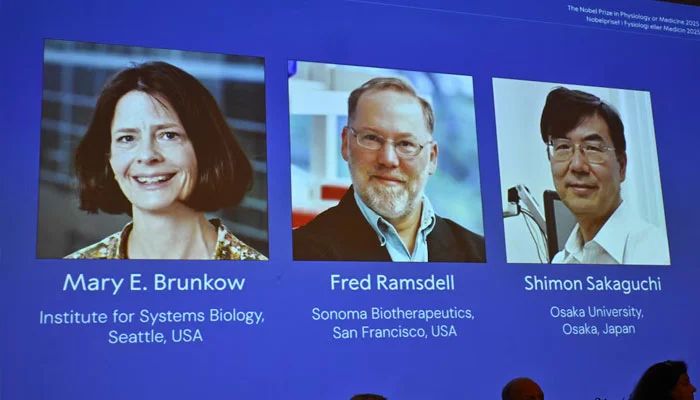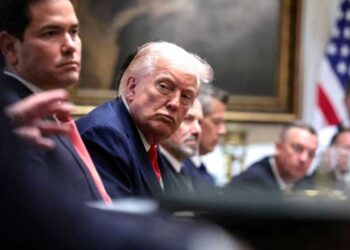Select Language:
A trio from the US and Japan has been awarded the Nobel Prize in Medicine for groundbreaking research into how the immune system regulates itself by identifying its “security guards,” the Nobel committee announced. The winners, Mary E. Brunkow, Fred Ramsdell, and Shimon Sakaguchi, made discoveries that are crucial for understanding immune function and explaining why autoimmune diseases don’t develop in everyone.
Shimon Sakaguchi, an immunology professor at Osaka’s Immunology Frontier Research Center, expressed his honor and excitement about attending the Nobel medal ceremony in Stockholm this December. However, the Nobel team was unable to reach the two U.S-based laureates directly to share the news beforehand.
In a humorous note, Thomas Perlmann, head of the Nobel Assembly, joked during the announcement, “If you hear this, call me.”
Their research pinpointed a special group of immune cells, known as regulatory T-cells, or “security guards,” responsible for maintaining “peripheral immune tolerance,” which prevents immune attacks on the body’s own tissues. Their work has paved the way for new research fields and potential therapies that are currently undergoing clinical evaluation.
The hope is that these findings will lead to treatments or cures for autoimmune diseases, improve cancer therapies, and mitigate complications following stem cell transplants. The trio will receive a diploma, a gold medal, and $1.2 million, which will be divided equally, at a formal ceremony in Stockholm on December 10.
Historically, many Nobel science winners have been from U.S. institutions, thanks to long-standing investments in scientific research and academic freedoms. However, recent significant budget cuts to U.S. scientific programs—amounting to billions in terminated grants and contracts—may threaten this dominance in the future.
Thomas Perlmann noted that the U.S. still boasts the most Nobel laureates but expressed concern about the country’s decreasing commitment to maintaining its leading position in research. Meanwhile, President Donald Trump has openly expressed a desire to win a Nobel Peace Prize, though experts believe his divisive “America First” policies make that unlikely, with some describing his approach as inherently incompatible with the Nobel ideals of cooperation.
This year’s notable contenders for broader recognition include networks of volunteers like the Sudanese Emergency Response Rooms (ERR), watchdog organizations such as the Committee to Protect Journalists and Reporters Without Borders, and political figures like Yulia Navalnaya, widow of the Kremlin critic Alexei Navalny.






